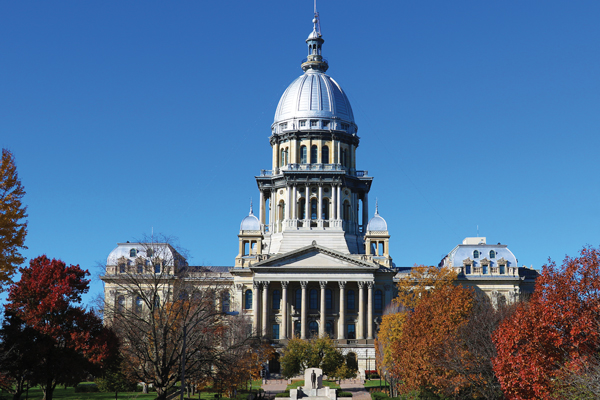As student loan debt and the need for retirement savings loom over the heads of many Americans, financial literacy is becoming buzz worthy, and many institutions aim to keep it in everyone's mind.
The Center for Financial Literacy at Champlain College has been following the progress of financial literacy across the U.S. since it released the first “National Report Card on State Efforts To Improve Financial Literacy in High Schools” in 2013.
The 2017 report, the third of its kind, mentions the improvements of states like Arkansas, which passed a law requiring a more realistic and practical financial literacy education for high school students. Meanwhile, Louisiana was scolded and demoted from a positive grade for changing its mandatory personal finance course to an elective.
The report's shtick is its letter grading. According to Champlain College, report cards are familiar to all Americans, and the public and policymakers can easily link a letter grade to performance.
The college based the grades on the financial literacy legislation summaries from the National Conference of State Legislatures.
Five States received an A; 19 received a B; 12 got a C; four states have a D; and 11 states received an F. This list will feature the top 10 states with an A or a B.
No. 10 New York
Grade: B
New Yorkers in the 12th grade spend at least 15 hours on personal finance in a one-semester financial literacy course titled “Economics, the Enterprise System and Finance.”

No. 9 Georgia
Grade: B+
Georgia received a plus because the Center for Financial Literacy estimated that high school students spend at least 17 hours of mandatory instruction on personal finance.

No. 8 West Virginia
Grade: B+
High school students in this state must take a full year of Civics for the Next Generation. Out of 45 of the learning goals outlined for the course, 10 are about personal finance.
If students take an AP government course, however, they’re exempted from the Civics for the Next Generation course.

No. 7 Florida
Grade: B+
This state requires high school students to take a half-year course in economics in order to graduate. The course reviews up to 37 hours of personal finance, according to Champlain College.

No. 6 Illinois
Grade: B+
Illinois is the real MVP of the B states. High school students spend at least 30 to 38 hours on personal finance in a 60-hour, one-semester mandatory course, according to the Center for Financial Literacy. Students must take consumer education for nine weeks.
However, Champlain College wasn’t able to determine how Illinois measured student success.

No. 5 Missouri
Grade: A
Missouri requires high school students to choose a half-year course in personal finance or a full-year course of practical arts that reviews personal finance for half the year. The students are also assessed on their achievement at no cost to school districts.

No. 4 Virginia
Grade: A
This state requires students to take an economics and personal finance course for a year to graduate. The program has nine out of the 18 learning goals geared toward personal finance.
Champlain listed Virginia’s state-funded online resources for teachers as “extra credit.”

No. 3 Alabama
Grade: A
Starting last year, Alabama made it mandatory for high school students to take a one-year career preparedness course. The course offers 13 topics focused on personal finance, meaning students are getting up to 68 hours of instruction in financial literacy.
The Center for Financial Literacy had a small caveat: It couldn’t tell how Alabama was measuring student success in regard to financial literacy.

No. 2 Tennessee
Grade: A
Though Tennessee is another state with unclear assessments of its financial literacy educational efforts, the state has a couple of positives that put it at the top. For example, high school students must take a half-year personal finance course, and the state has a robust list of learning goals for students, according to the report.

No. 1 Utah
Grade: A+
Utah tied with four other states for an “A” grade, but the Center for Financial Literacy claimed it was the only state worthy of an “A+.” Like Tennessee, Utah mandated that high school students take a financial literacy course for half a year. It also requires students to take an end-of-course exam to assess what they’ve learned. The state supports educators with resources, tools and professional development opportunities.

To view the full report, click here https://www.champlain.edu/centers-of-excellence/center-for-financial-literacy/report-national-high-school-financial-literacy